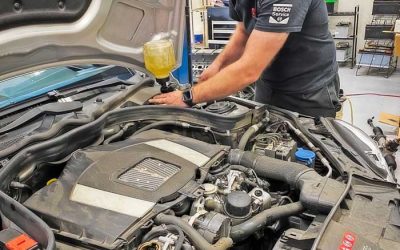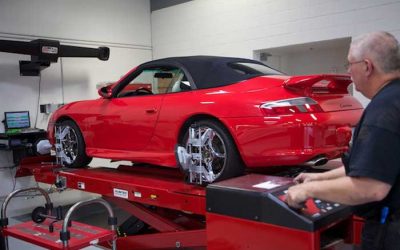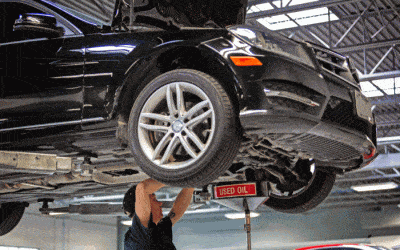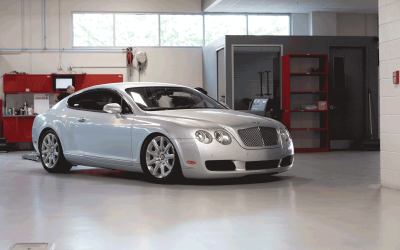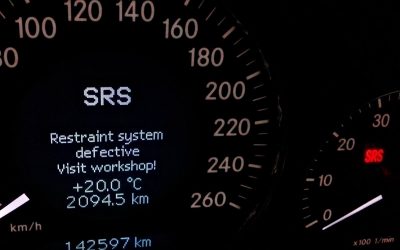Support
Looking for a solution to your car problem?
Frequently Asked Questions
How do I know if a pothole damaged my car?
Ask yourself: Is your car pulling either to the right or left while driving on a straightaway? Are you experiencing difficulty with steering the vehicle? Are your tires wearing unevenly or prematurely? Do any of your wheels have a dent? Do you have to air-up one or two of your tires frequently? If you answer yes to any of the above, then it’s possible that pothole caused some form of damage.
Why fill tires with nitrogen instead of air?
By reducing the percentage of oxygen, water vapor and other gases in your tires from 22% to 7% or lower, your tires will maintain proper pressure longer than if you use “plain old air.” For example, with 95% nitrogen in your tires, they retain optimal pressure three to four times longer.
Carbon buildup on valves - What is it & how do I clean it?
Carbon build-up is a common issue with direct-injected engines like those in modern BMW and Audi models that is an accumulation of carbon deposits on the engine cylinders’ intake valves. A carbon clean method called “walnut shell blasting” is used to safely and effectively clean carbon build-up.
What is an extended warranty & should I get one?
Nobody likes unexpected expenses for auto repairs, if you want peace of mind and like to save money, an extended warranty is a great way to accomplish both. An extended warranty is essentially a service contract between the car owner and the warranty company. According to this contract, the warranty company will pay for the covered repairs for a specific period of time. An extended warranty can help you protect yourself from unexpected repair costs.
What is the difference between Mustang Dynos vs. Dynojet Dynos?
Simply put, Dynojet numbers are usually inflated and Mustang numbers are closer to “true” horsepower numbers. Mustang dyno numbers are more accurate because it takes in to account the variables for each different car. A dynojet just measures how fast the car spins a large drum that is a certain weight and calculates HP from that. A Mustang dyno could be higher than a dynojet, but that is rare.
Why is my low coolant warning light coming on?
Your car has a floating-level which rises and falls with the coolant level in your radiator. As the level falls below a critical amount of coolant in the radiator or expansion tank, required to keep the engine from overheating, the system triggers a warning to alert you. A lot of the time, the coolant level is low because of a leak somewhere.
How long should it take for my car to cool down?
If your car is parked under the sun all day, the temperatures are most likely well over a 120 degrees Fahrenheit. Presuming your car’s A/C is working properly, it should take around 5 to 10 minutes before you can start feeling comfortable. Read more below to find out the quickest way to cool down your car’s interior.
What are the benefits of frequent oil changes?
Simply put, frequent and routine oil services for your European car are one of the most inexpensive ways to ensure that your investment has a long-living power plant under the hood. Never skip an oil change!
When should I get my oil changed?
Proactive maintenance = a healthy car!
At AUTOSCOPE, one of our core beliefs is that being proactive towards car repair and service prevents break downs and helps to reduce unexpected repair costs. By performing proactive maintenance and inspecting the vital systems on your car regularly, this will show those early warning signs that a trained professional sees on a daily basis, and can spot very quickly on a routine check.
Helpful Foreign Car Owner Articles
Why Do I Need To Change My Brake Fluid?
The systems within your car are all intertwined, with every piece contributing to the overall function of the vehicle. Beyond auto parts are all the fluids that assist in the proper function of your vehicle too. This includes the role that brake fluid plays in your...
How often does my Audi need an oil change?
Many mechanical breakdowns are avoidable with preventative maintenance, and the single most important preventive maintenance routines you can perform on your Audi vehicle is to regularly change the oil. Thoroughly flushing your fluids at proper intervals can help to...
What Is Porsche Interim Service?
A luxury vehicle such as a Porsche can be unmistakably enjoyable to drive. Your investment in your Porsche is best protected when you consistently get it serviced! But what does that mean? We’re here to explain general recommendations for servicing your Porsche to get...
When to Change the Oil in Your Mercedes-Benz
Motor engine technology has come a long way. We’ve moved past the days of carburetors, distributors and regular engine oil to fuel injectors, ignition systems and long-life synthetic oils, meaning that you don’t need to change your oil every 3,000 miles anymore. So,...
Hydroplaning 101
If you want to understand what hydroplaning is, here is everything you need to know about this phenomenon so that you can take to the road safely, and confidently, no matter the weather conditions. Written by: Bradley HayesAutomotive Blogger & Director of...
Here’s All the Info You Need About the Porsche IMS Bearing
Written by: Bradley Hayes Automotive Blogger & Director of Marketing, Autoscope European Car Repair The Porsche IMS Bearing - Small Component, BIG Problem Have questions about the infamous Porsche IMS bearing? You're not alone. By now, most (if not all) Porsche...
How often does a BMW need an oil change?
Changing your oil is an essential preventative maintenance service for any car, especially for your BMW. If you want to keep your vehicle running smoothly, regular oil changes are essential. A car’s oil keeps the engine parts lubricated to ensure that they’re running...
Bentley Air Suspension Repair
Your Bentley is a sophisticated car and is equipped with an amazing air ride suspension. Occasionally, something may go wrong with your Bentley air suspension, however, and it will require attention. HERE ARE A FEW THINGS YOU SHOULD KNOW ABOUT YOUR BENTLEY AIR...
Mercedes-Benz SRS Malfunctions
What does the Mercedes-Benz SRS Light Mean? What is your Mercedes SRS light? "SRS" stands for Supplemental Restraint System. It has to do with your safety restraints, which include your airbags and seatbelts. Keeping these in good repair can keep your safe in an...

